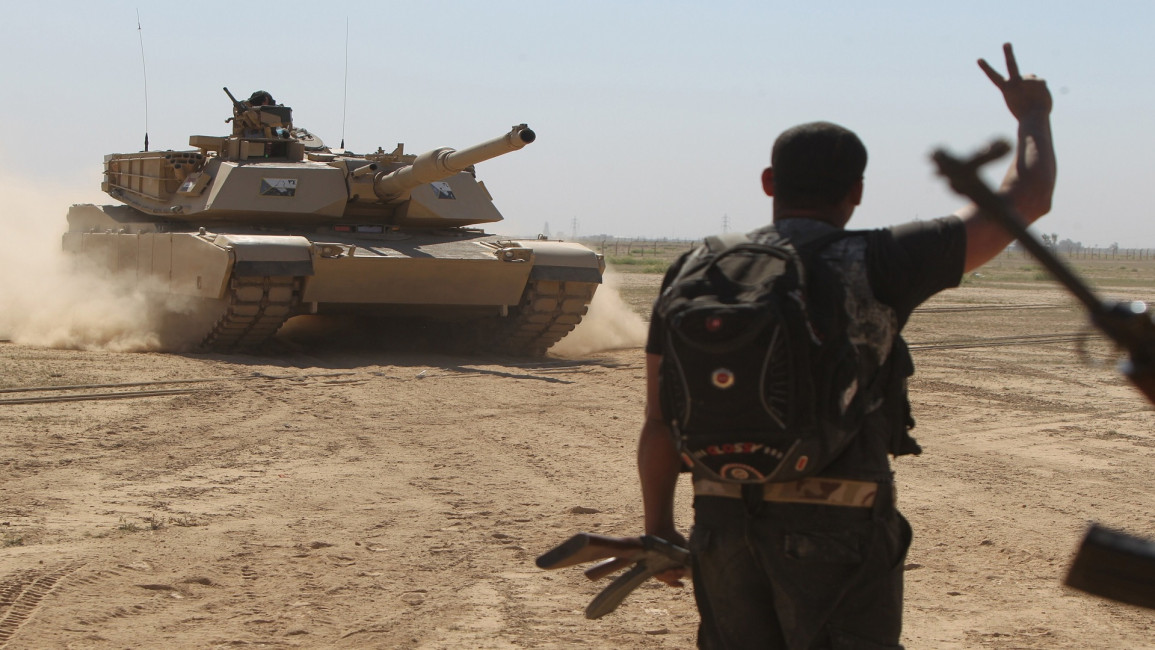Iraq 'bans Shia militias from Mosul offensive'
Iraq is to ban Shia militias from attempts to retake the city of Mosul from the Islamic State group in a tacit admission of its mistakes in Tikrit, a defence ministry source have told al-Araby al-Jadeed.
According to the source, the government of Haider al-Abadi would ensure that the so-called "Popular Mobilisation" militias, which were directed by Iranian forces during the Tikrit offensive, would take a "back seat" in any upcoming campaign.
The source said that Iraq would rely on US-led alliance air power, which Iraq said was unnecessary in Tikrit before appealing for help after Iran and the Shia militias withdrew.
The changes come amid reports that the prime minister had been forced to reconcile with the defence minister, Khaled al-Obaida, after ignoring his advice in Tikrit.
| Frankly speaking, Abadi seeks to rule out the Popular Mobilisation forces from the battle. Defence ministry source |
"The prime minister met Obaida after the battle in Tikrit and gave him the go-ahead to plan the offensive on Mosul," the defence ministry source told al-Araby. "Abadi gave Obaida. The serious blunders committed in Tikrit made Abadi realise that the defence ministry and veteran military leaders should be drawing up battle plans.
"Frankly speaking, Abadi seeks to rule out the Popular Mobilisation forces from the battle."
He added that the international coalition will be asked to launch pre-emptive airstrikes before Iraqi ground troops are sent in.
The Shia militias were the backbone of the force that attempted to retake Tikrit. The defence ministry disagreed with their use, a position which reportedly led to Abadi's decision to sideline the defence ministry from planning.
Shia militias were accused of crimes against Sunni resident of Tikrit as they tried to force the Islamic State group from the city. Mosul is a majority Sunni city.
The 33-day battle to retake Tikrit, now drawing to a close, was originally led by the Iranian Revolutionary Guards under the command of Qassem Soleimani.
About 25,000 men took part in the early battles, but failed break into the city. Operations came to a halt 10 days after the battle started when the Iranians and some militias factions pulled back. The US agreed to Iraq's request to launch airstrikes to resolve the battle.
This is an edited translation from our Arabic edition.


![President Pezeshkian has denounced Israel's attacks on Lebanon [Getty]](/sites/default/files/styles/image_684x385/public/2173482924.jpeg?h=a5f2f23a&itok=q3evVtko)



 Follow the Middle East's top stories in English at The New Arab on Google News
Follow the Middle East's top stories in English at The New Arab on Google News


